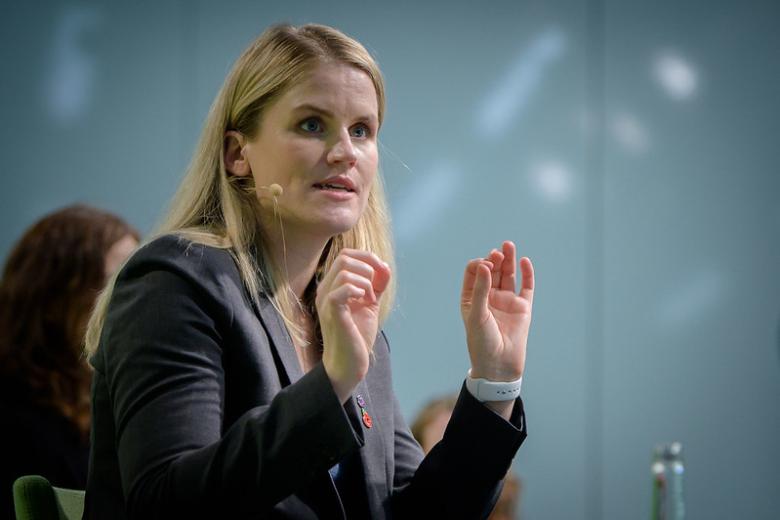The EU Directive on Administrative Cooperation (DAC), enacted in 1977 and – as a standard – most recently re-adopted in 2011, has been amended several times with its scope of application broadened over the years. The DAC and its amendments tend to follow discussions on transparency and exchange of information within the Organization on Economic Co-operation and Development (OECD). Consequently, the DAC started with providing the opportunity to exchange information upon request but this shifted to the situation where more information is to be exchanged automatically.
The Things We (Don’t) Care About: A Reflection Following the MEPLI Interns’ Thesis Workshop
- Law
Reflecting on the M-EPLI Interns' Thesis Workshop: Can institutions benefit from reassessing their priorities in terms of what they incentivize and analyzing why these types of events offering an opportunity for students to write and get substantive feedback so rare?

Transparency and legal certainty of the references to international standards in EU law: smoke signals from Luxembourg?
- Law
With its judgment in case Stichting Rookpreventie Jeugd and Others (C-160/20) of 22 February 2022, the Grand Chamber of the Court of Justice of the European Union (Court of Justice) has set a fundamental milestone on the legal status and consequences of incorporating global standards in EU legislation. The decision may represent a welcome development for those who advocated for an application of the general principles of EU law and of fundamental guarantees of legitimacy and democracy in the context of the controversial world of technical standardisation. Yet, the reasoning of the Court appears purposefully elusive on the core issues of the case and on the concrete application of the ruling, ultimately raising more questions than answers.

Don’t sweat the small stuff? The new proposal for the EU directive on corporate sustainability due diligence
- Law
On 23 February 2022, the European Commission released the much anticipated proposal for the Directive on Corporate Sustainability Due Diligence. The aim of this Directive is to reduce human rights violations and environmental harms across the global value chain by making large companies carry out ESG due diligence and aligning their corporate policies more with various international commitments such as the Paris Climate Agreement (Article 15) and the Universal Declaration of Human Rights (Annex).

Attendance matters!
- Law
As course coordinator and tutor for the only mandatory law course in the Bachelor in European Studies, I typically start the course with a clear message to students: Law as a discipline has its own language and logic and you can only get the hang of it by doing it. This means attending and participating in the tutorials. Since other course coordinators probably tell students the same thing, I emphasise this point by giving students a solemn guarantee: you will not pass this course if you don’t show up for the tutorials. Like in other disciplines, without a prior background in law, it is very difficult to master legal reasoning through self-study.

Splitting up Big Tech companies? Let’s think about the consequences!
- Law
Recently I was interviewed by Dutch news radio station BNR on the question whether there are legal or economic arguments to split up Big Tech companies like Facebook, Google, Amazon, Apple and Microsoft. Because the interview was short, I could not give a truly balanced answer. Rather, from my Law & Economics background, I chose to bring some lesser-known nuances to the debate, arguing that splitting up Big Tech companies may not be the best solution to the underlying problems.

The Facebook whistleblower: what’s different this time? Part II
- Law
In Part I we explained the outstanding profile of the Facebook Whistleblower Frances Haugen. We now discuss the factors showing whether Haugen’s whistleblowing experience is an outlier or whether it is indicative of what we will be seeing in other whistleblower cases in the future.

Madrid Commercial court refers UEFA & FIFA’s anti-competitive kick to the ECJ
- Law
In early 2021, Europe’s twelve leading football clubs joined hands to create the European Super League. Despite the presence of notable clubs such as Liverpool, Manchester United, Milan, Barcelona and Real Madrid, the League soon fell apart. Unable to convince those on the football field, the three clubs - Italian Juventus, Spanish Barcelona and the Real Madrid - joined hands to formally register a complaint before the Madrid commercial court, which in turn has referred some questions to the ECJ. This blog contemplates about the issues referred to therein.

The Facebook whistleblower: what’s different this time? Part I
- Law
“I don’t hate Facebook. I love Facebook. I want to save it”, wrote Frances Haugen as she resigned from Facebook and revealed tens of thousands of documents alleging Facebook has time and again prioritized profit over people.

Voluntary compensation schemes for consumers
- Law
Can consumers with suspicion of unfair commercial practices linked to the voluntary compensation scheme make the aviation sector more sustainable? Does the EU Directive on Unfair Commercial Practices play a role in this?

